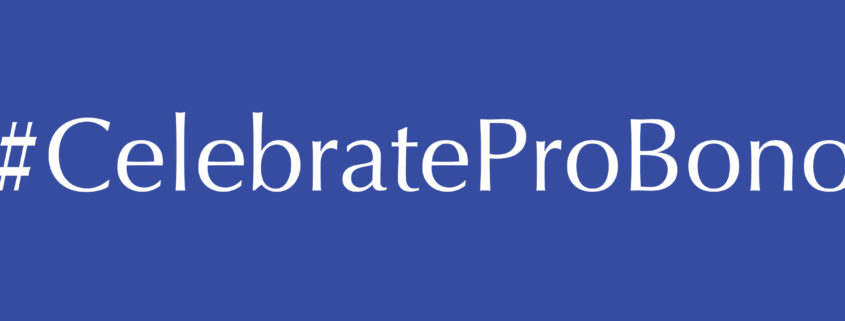Pro Bono Week: Celebrate Giving Back, Become Part Of the N.C. Pro Bono Honor Society
Lawyers, you have another reason to smile this week.
It’s National Celebration of Pro Bono Week, an annual initiative spearheaded by the ABA Standing Committee on Public Service to enhance and expand efforts to increase access to justice for all. The #celebrateprobono effort gives legal communities around the country an opportunity to recognize the good legal volunteer work being done. In North Carolina, we have much to celebrate in this regard.
In January 2017, the N.C. Pro Bono Resource Center established North Carolina’s first statewide voluntary reporting process. This process allows attorneys to report information about their pro bono legal service in 2016. What we heard through that process was encouraging: Attorneys reported more than 25,000 hours of pro bono legal service provided last year. Further, 89.3 percent of respondents reported providing some legal volunteerism, and 20 percent of respondents engaged in all the types of activity included in the rule: pro bono legal service, law improvement activity, non-legal community service, and financial contributions to support civil legal aid.




